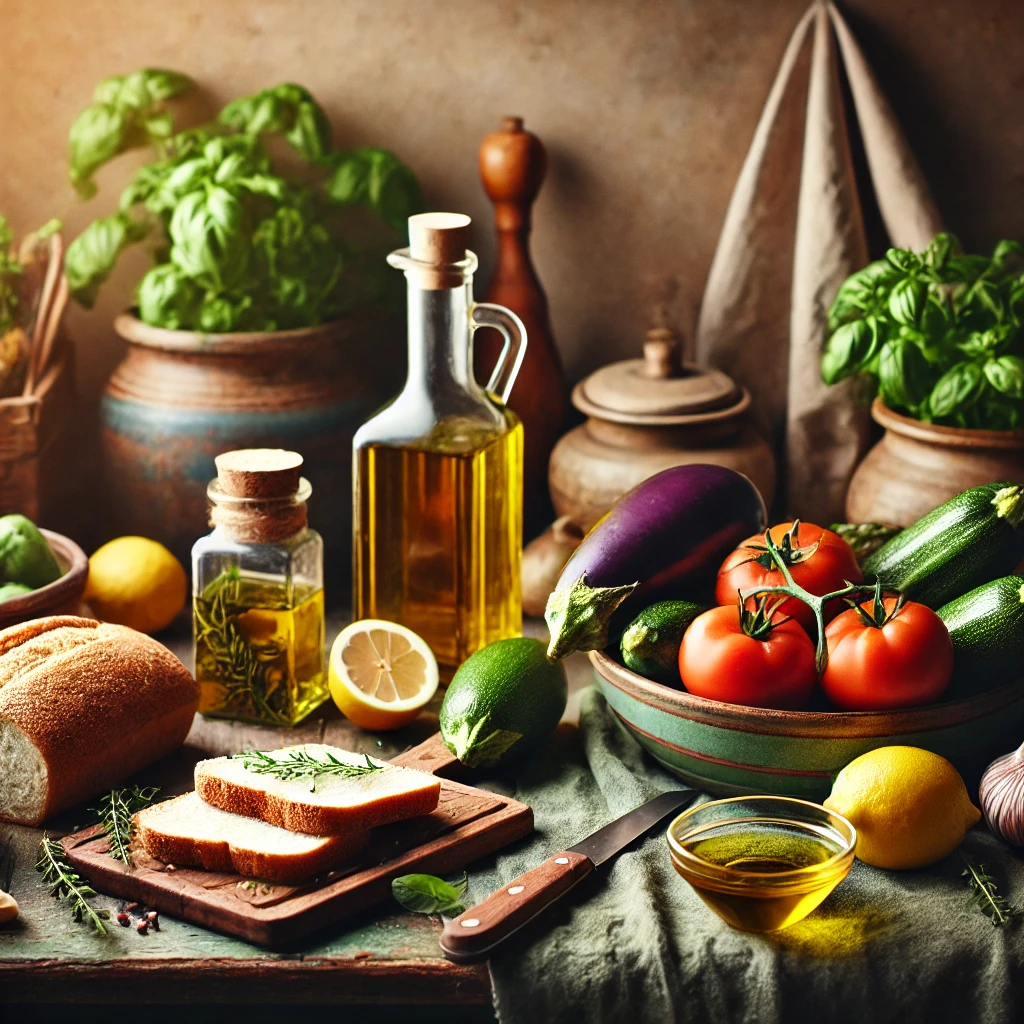

The start of a new year brings an opportunity to embrace fresh habits, and when it comes to healthy eating, the Mediterranean diet consistently shines as a top choice. Rooted in the culinary traditions of Greece, Italy, and surrounding countries, the Mediterranean diet is more than a way of eating—it’s a lifestyle that celebrates fresh, whole foods and the joy of sharing meals.
If your resolutions include eating better, the Mediterranean diet offers a sustainable and delicious way to support your goals. With a focus on vibrant vegetables, hearty legumes, and wholesome grains, this approach to eating is as versatile as it is nutritious.
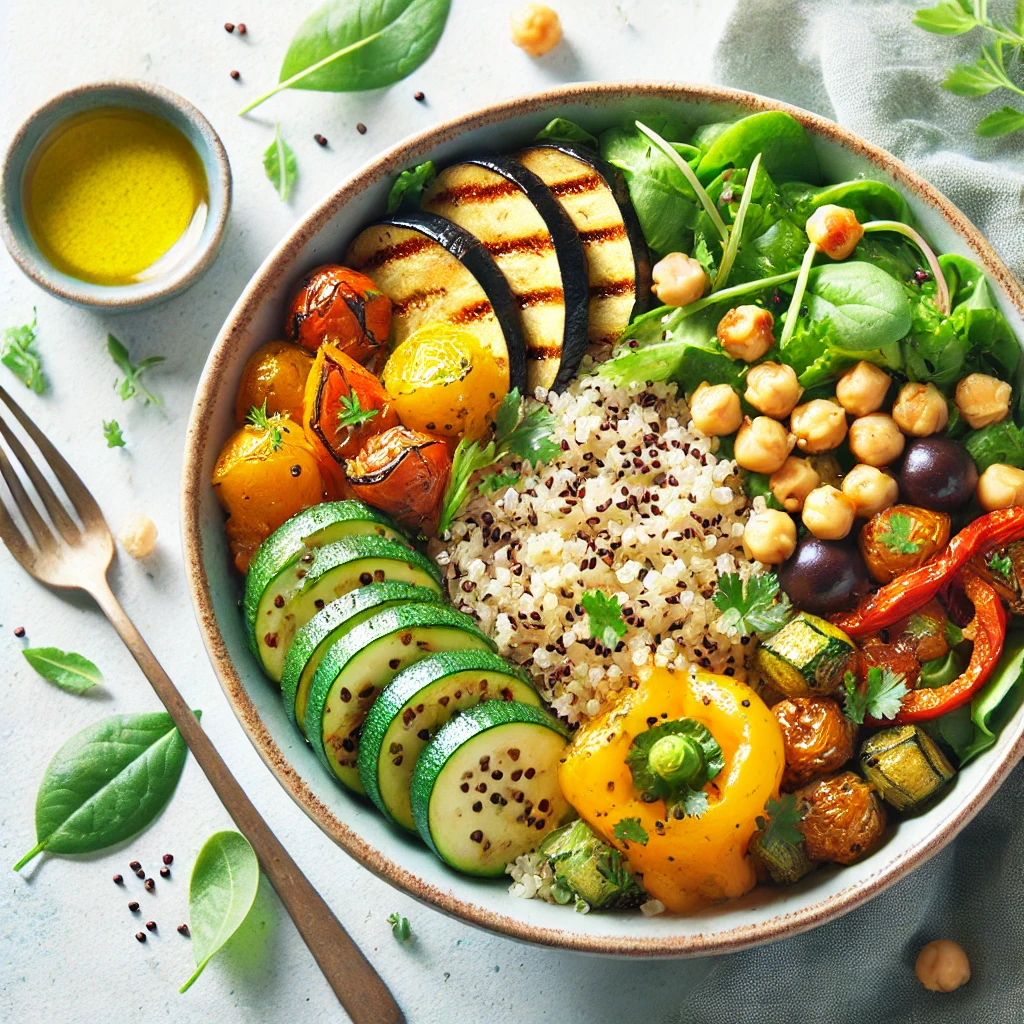
Unlike restrictive diets that eliminate entire food groups, the Mediterranean diet is about balance and variety. Its emphasis on nutrient-dense foods makes it not just healthy but also deeply satisfying. Here’s what sets it apart:
Research consistently links the Mediterranean diet to numerous health benefits, including lower risks of heart disease, diabetes, and obesity, as well as improved mental well-being.
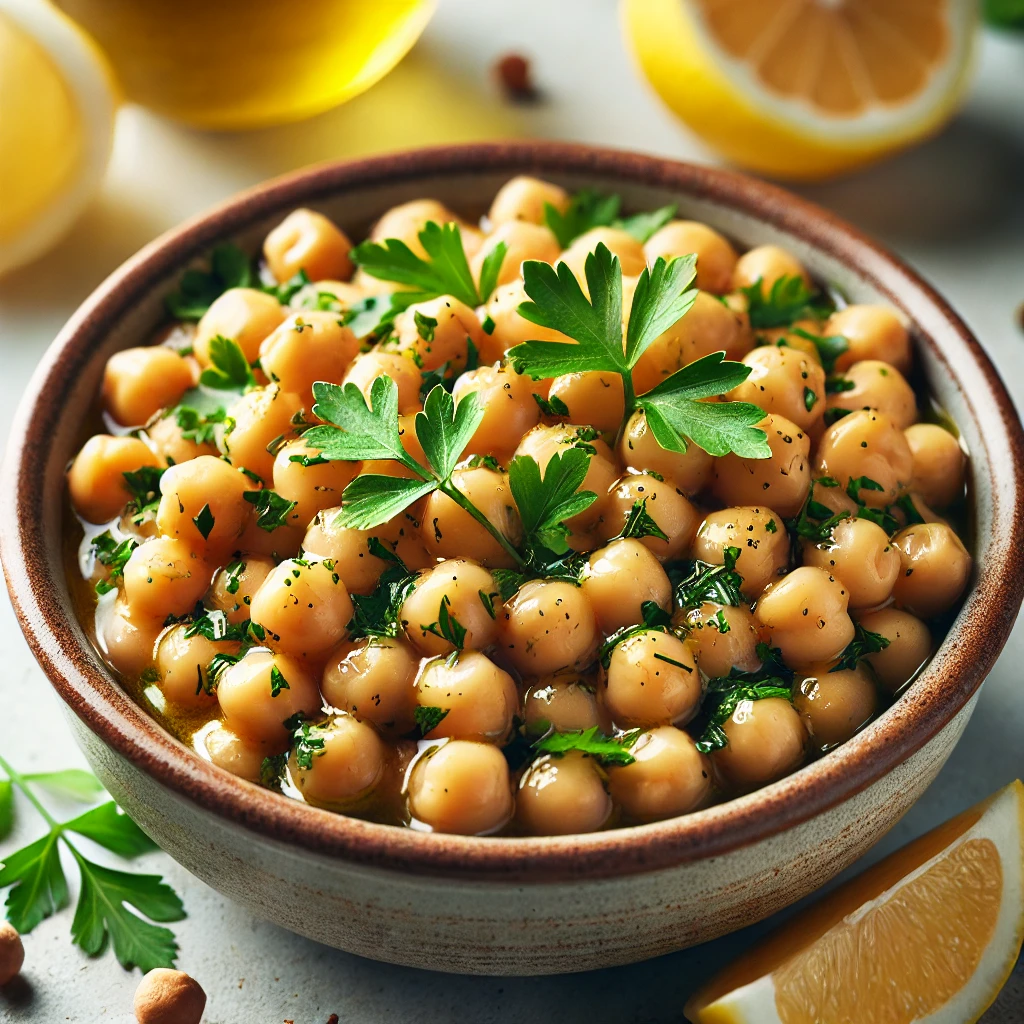
If you’re ready to dive into the Mediterranean diet, start by incorporating these staples into your meals:
Vegetables form the foundation of Mediterranean cuisine. Think roasted eggplant, sautéed zucchini, and colorful peppers. These nutrient-packed ingredients are used in soups, stews, and mezze spreads. Seasonal vegetables, prepared simply with olive oil and fresh herbs, are a hallmark of this diet.
Legumes like beans, chickpeas, and lentils are essential. They’re rich in fiber, protein, and minerals, making them a great meat alternative. Dishes like hummus, fava puree, and giant beans in tomato sauce highlight how legumes can be both comforting and flavorful.
Whole grains such as barley, farro, and bulgur are staples in many Mediterranean dishes. They provide slow-burning energy and pair beautifully with vegetables, legumes, and lean proteins. Whole-grain bread, often dipped in olive oil, is another simple pleasure of the diet.
Extra virgin olive oil is the crown jewel of Mediterranean cuisine. It’s used in cooking, as a dressing, and even drizzled over finished dishes to enhance flavor. Its rich, fruity taste complements everything from salads to roasted vegetables.
Fish, seafood, and plant-based proteins are preferred over red meat. Grilled fish drizzled with lemon and olive oil is a quintessential Mediterranean dish, as are seafood stews and stuffed vegetables.
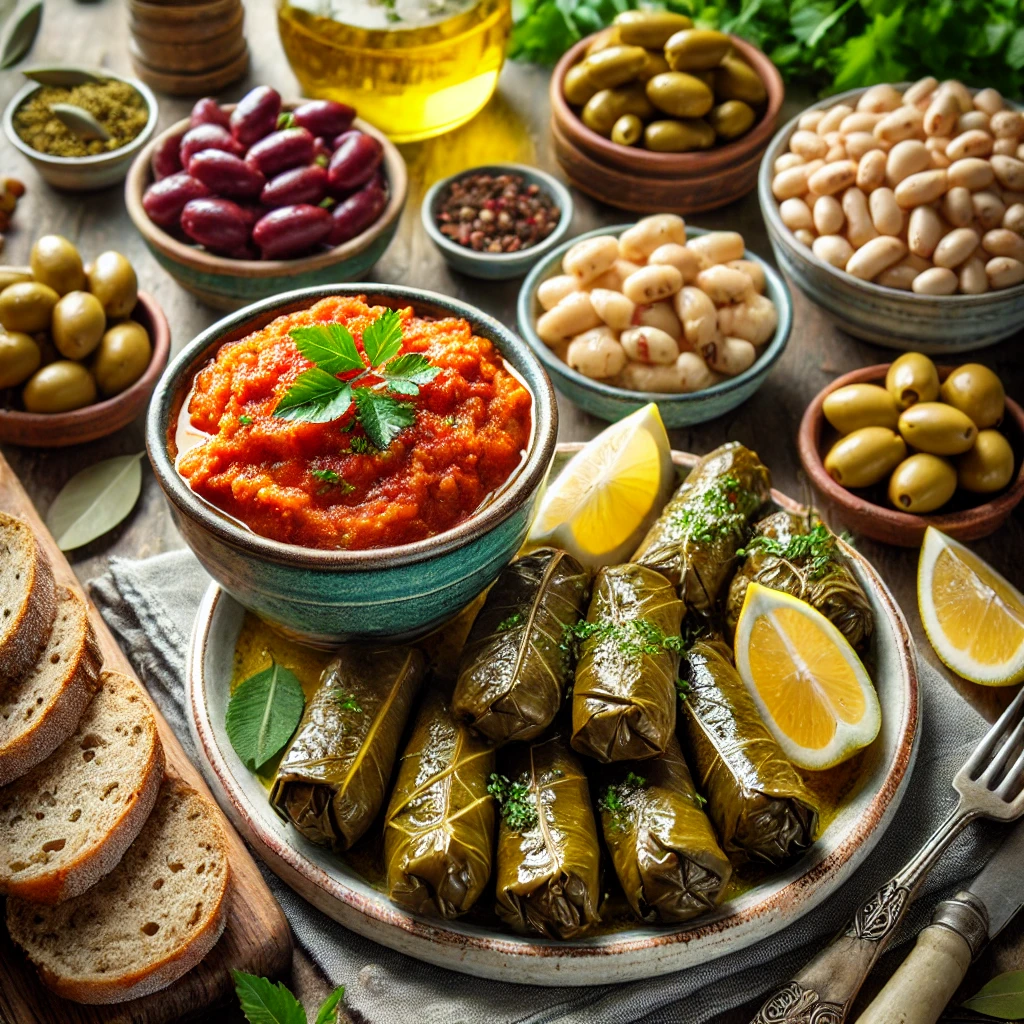
Switching to a Mediterranean way of eating doesn’t have to be overwhelming. These simple tips can help you incorporate its principles into your daily routine:
Begin by making one meal each day Mediterranean-inspired. For example, swap your usual lunch for a grain bowl topped with roasted vegetables, chickpeas, and a drizzle of olive oil.
Mediterranean meals often rely on ingredients that are easy to prepare in advance. Roast a large tray of vegetables, cook a pot of lentils or beans, and store them in the fridge for quick meal assembly throughout the week.
Mezze spreads are an excellent way to enjoy a variety of Mediterranean flavors. Include options like hummus, tzatziki, stuffed grape leaves, and olives for a satisfying, no-cook dinner.
Replace butter or other oils with extra virgin olive oil in your cooking. Use it to sauté vegetables, drizzle over salads, or as a dip for whole-grain bread.
The Mediterranean diet celebrates seasonal eating. Visit your local farmers’ market to find the freshest vegetables and fruits, and build meals around what’s in season.
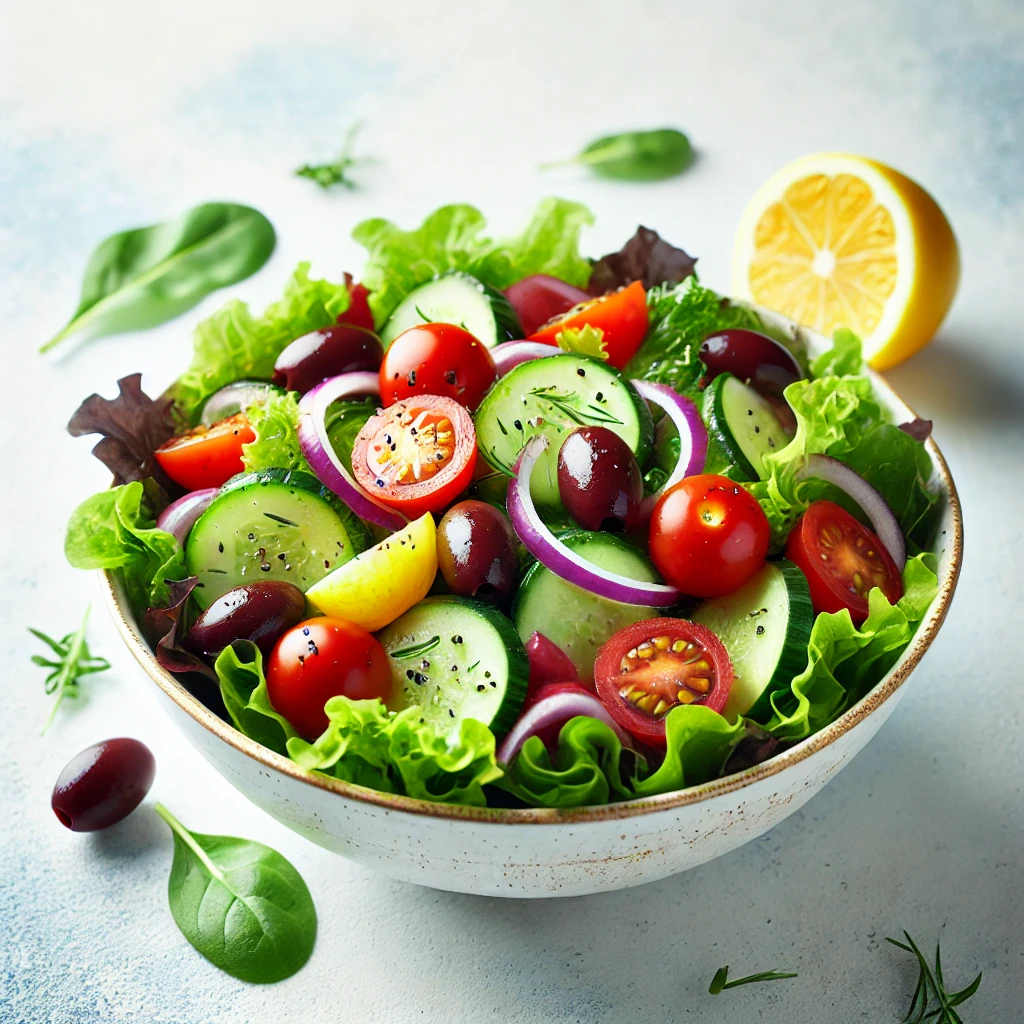
Embracing the Mediterranean diet is about more than just food—it’s a lifestyle that encourages connection, balance, and enjoyment. By focusing on fresh, whole ingredients and savoring each meal, you’ll not only improve your physical health but also your relationship with food.
As you embark on your health journey this year, remember that change doesn’t happen overnight. Small, consistent steps—like swapping out refined grains for whole grains or incorporating more vegetables into your meals—can make a big difference over time.
Let the Mediterranean way of life inspire your 2025 resolutions, one delicious dish at a time.